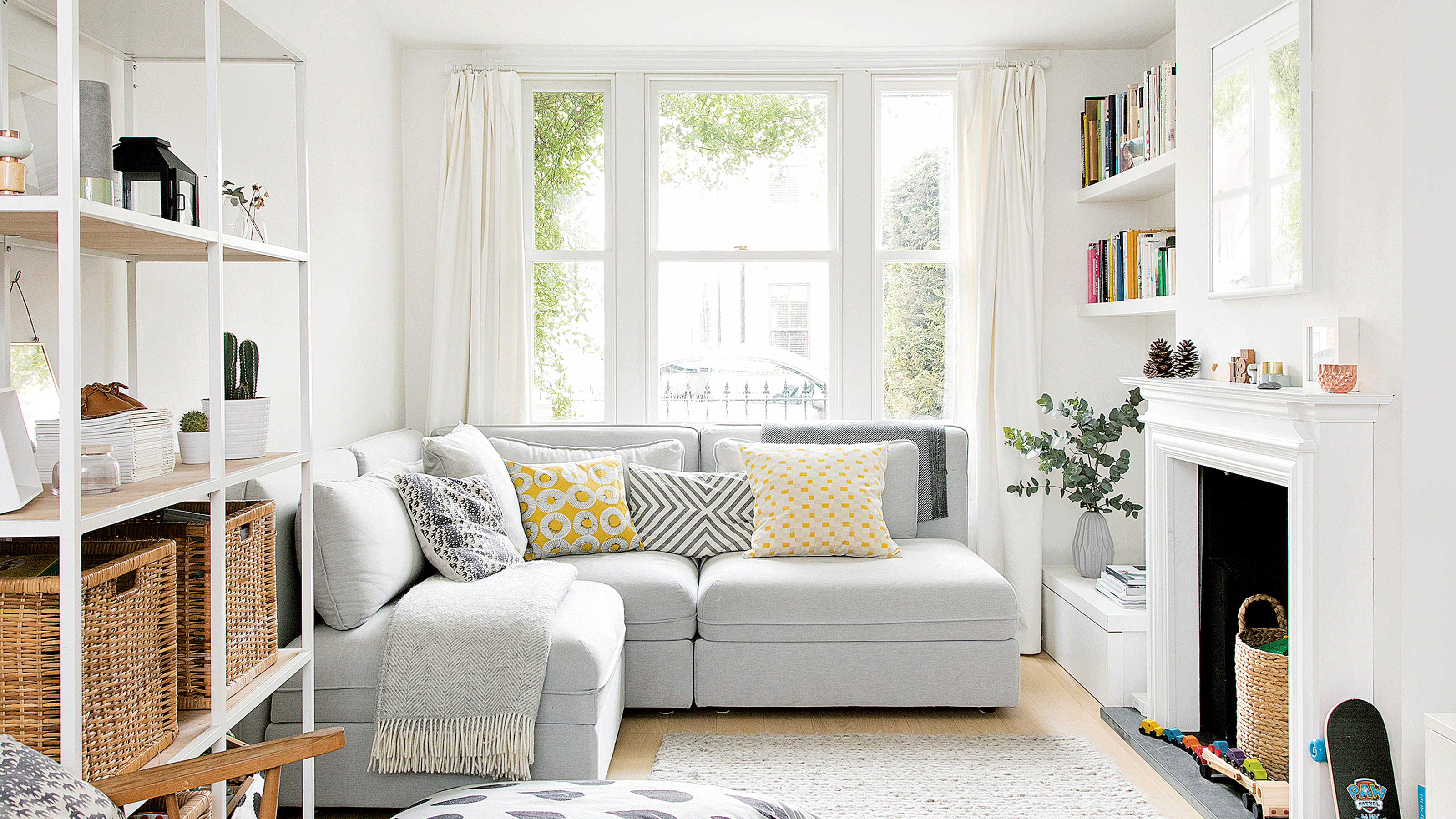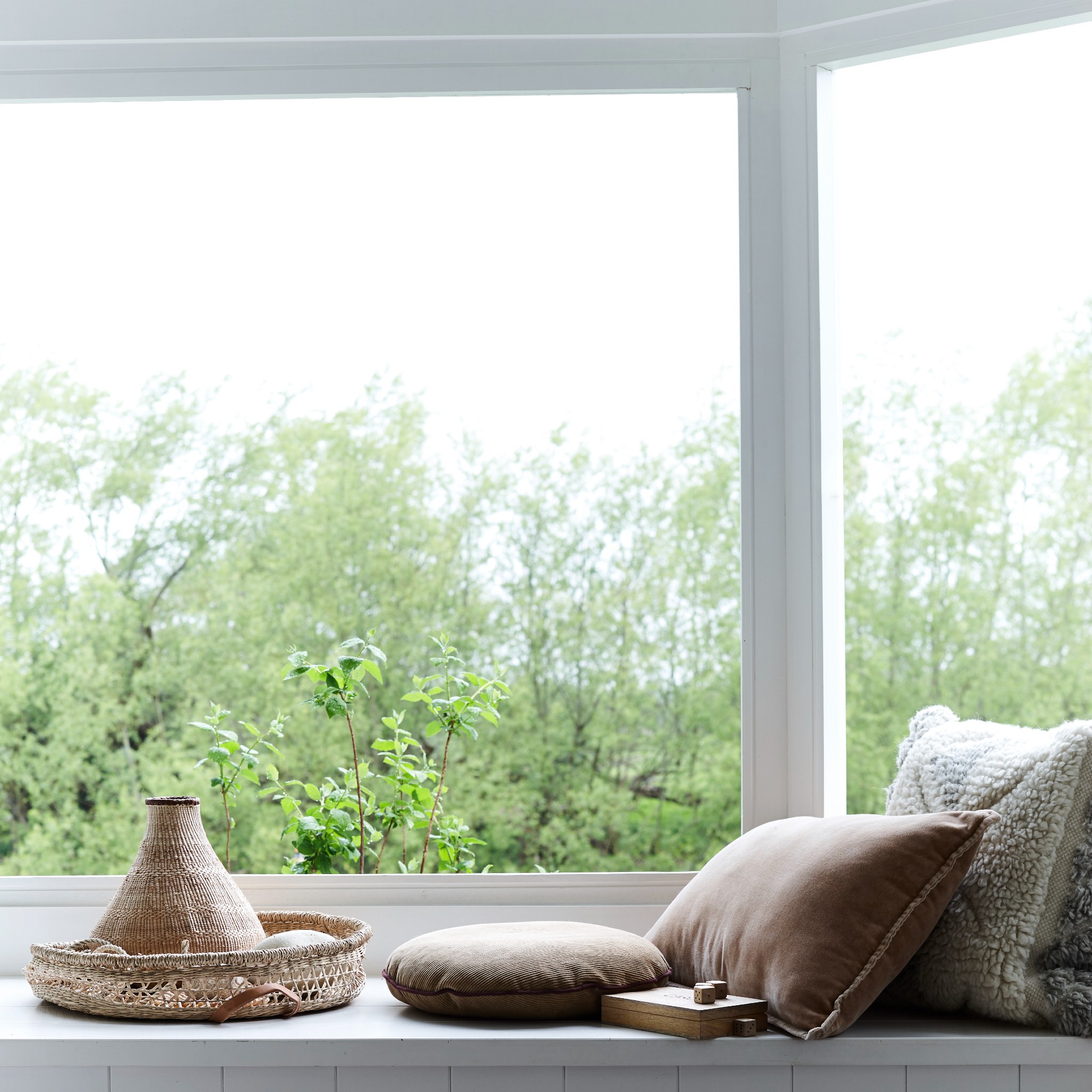Experts warn it’s *vital* to open your windows every day in winter - even when it's freezing
It’s probably the last thing you want to do, but it’s definitely a sensible move for the health of your home


Sign up to our newsletter for style inspiration, real homes, project and garden advice and shopping know-how
You are now subscribed
Your newsletter sign-up was successful
As soon as the colder temperatures settle in, it’s only natural to want to batten down the hatches, shut all your doors and windows, and not open them again until the spring.
However, as tempting as it is to keep the cold out as much as possible, letting fresh air into your home even over the autumn and winter isn’t only advised by experts – it’s pretty much essential in order to keep your property in tip-top shape. And not just when it comes to drying clothes fast indoors!
In fact, neglecting to open your doors and windows to let a breeze into your home can have some pretty rubbish consequences – meaning it’s something the experts say you should do daily, no matter how bad the weather is.
Why it’s vital to ensure a flow of fresh air to your home
There are a number of reasons why throwing open your doors and windows is important this winter, despite how uncomfortable it may feel. The crux of the matter, is that all homes still require a level of ventilation, even when its cold outside.
'Many UK residents will be sacrificing the required ventilation to keep their home healthy this winter for the need to stay warm and cozy, which is entirely natural,' James Longley, Managing Director at Utility Bidder says. 'However, a lack of fresh air in any building can lead to an onset of mould, damp, and condensation growth and further deterioration further down the line.'
Mould and mildew tend to occur when humidity levels inside a home or room are high, and when there’s nowhere for the increased levels of moisture to go – e.g if doors and windows remain tightly shut.
Fantastic Services' licensed electrician and HVAC expert David Miloshev explained, 'Closing all windows and doors traps moisture inside that results from everyday activities, such as cooking, bathing and even breathing.'
Sign up to our newsletter for style inspiration, real homes, project and garden advice and shopping know-how
Unfortunately, he says, there are consequences to doing this. 'Excessive moisture can lead to condensation on windows, walls, and ceilings, providing an ideal breeding environment for mould to grow, which, over time, can damage surfaces and further impact indoor air quality negatively,' he points out. 'Studies have shown that mould can cause headaches and breathing problems and trigger asthma conditions and allergies and if you leave this issue untreated.'
'As such, adequate ventilation is crucial in preventing condensation on walls and ceilings, as well as windows,' he says.

Another issue that is often forgotten about, is the number of indoor pollutants our homes tend to hold, which can be damaging if they don't have means of escape. David says, 'It’s actually believed that indoor air is 10 times more polluted than outdoor air because of the increased concentration of pollutants.'
'Usually, household activities such as cooking and cleaning release pollutants into the air, and ventilation is one of the key ways that help to expel them,' he continued.
And those aren’t the only indoor pollutants you need to worry about – James explains that even things like pet hair, fluff and dust can cause issues if not properly dispelled from the home.
'Not only are these pollutants bad for your home, but they put your health, and especially elder residents, at risk. Breathing in the aforementioned pollutants can lead to respiratory issues worsening such as asthma, or increase the risk of other allergies, for example,' he says.
Though the best air purifiers can help with removing indoor pollutants, and improve air quality, but the experts urge that fresh air is the most effective (and affordable) option for improving the air quality in your home.

So how often should you open your windows in order to get enough ventilation into your home, and how long do they actually need to be open for? We’re hoping not long, considering the British weather!
'Be sure to open your windows in small time gaps throughout the day, perhaps 5-10 minutes at a time, and if you can, open these at both sides of the house to allow for cross-ventilation,' James urges.
'In addition to that,' David said, 'for rooms such as the bathroom and kitchen, consider using the exhaust fans, especially when cooking or after taking a shower or a bath. When doing that, keep the windows open just slightly so the conditioned air from inside isn’t sucked outside, creating a localised circuit.'
Of course, if you are older and at risk of suffering adverse effects from exposure to the cold, be sure to take the necessary precautions, putting your heating on when you can and in the coldest temperatures, only leaving windows open for just minutes at a time. It might also be wise to consider using one of the best dehumidifiers in this case, to lessen the need for opening windows and doors in the most freezing conditions.

Amy Hunt is an experienced digital journalist and editor, now working in a freelance capacity specialising in homes and interiors, wellness, travel and careers. She was previously Lifestyle Editor at woman&home, overseeing the homes, books and features sections of the website. Having worked in the industry for over eight years, she has contributed to a range of publications including Ideal Home, Livingetc, T3,Goodto, Woman, Woman’s Own, and Red magazine.